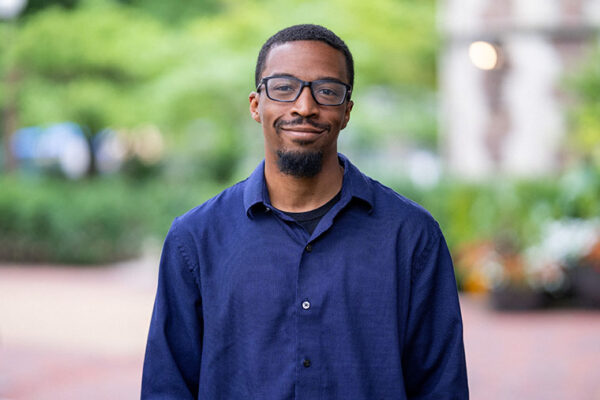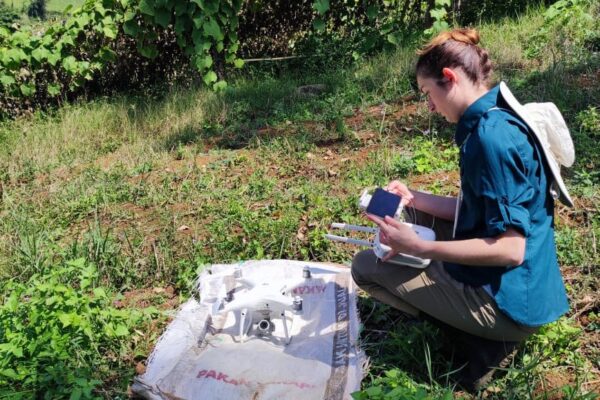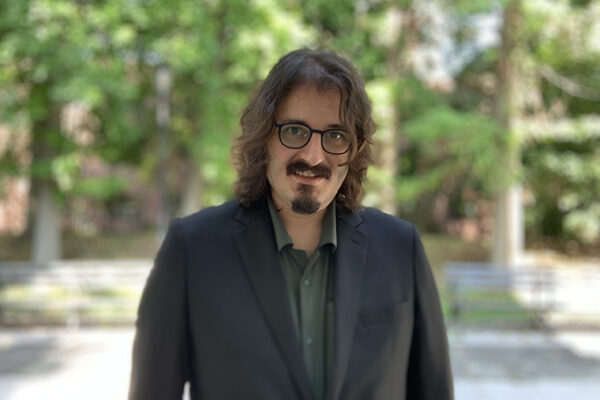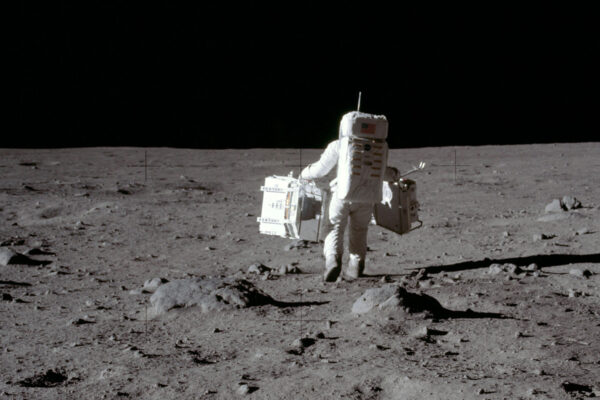Engaged City fellow applications due
The Engaged City is seeking three community-based practitioners — such as artists, writers, illustrators, or data scientists — for its Community Fellows in Residence Program. The application deadline is July 16.
Biologist Cox wins young investigator award
Kevin Cox, an assistant professor of biology in Arts & Sciences, received the 2025 Eric E. Conn Young Investigator Award from the American Society of Plant Biologists.
Writing his own story
CJ Harrington is taking lessons learned at WashU to bet on himself and build a life — and a career — from the ground up.
A superhero league like none other
Alumna Lisa Kollins partners with artists to help kids with illnesses see themselves as heroes.
Environmental futures
Discover some of the many environmental projects currently underway among WashU’s graduate student community, the ‘research engine of the university.’
Of mystery and wonder
Alumnus Mike Bezemek has turned a lifelong love of the outdoors into an enterprising writing career. His latest nonfiction book, Mysteries of the National Parks, is a thrilling read and a reminder to look beyond the obvious for answers and adventure.
Hello Kitty, McDonald’s and K-pop
From West to East and back again, an Arts & Sciences course uses pop culture and food to examine East Asia and globalization.
A man of letters
A surprising donation of correspondence to WashU Libraries last winter is starting to yield new insights into the life of poet Howard Nemerov.
Cosmic ‘lenses’ will better define dark matter
Physicists Bryce Wedig and Tansu Daylan, in Arts & Sciences, calculated how many gravitational lenses will be uncovered by NASA’s Nancy Grace Roman Space Telescope when it begins science operations in 2027. By examining a large population of these lenses, the researchers hope to learn a lot more about the mysterious nature of dark matter.
Why the moon shimmers with shiny glass beads
Using a variety of microscopic analysis techniques not available when the Apollo astronauts first returned samples from the moon, physicist Ryan Ogliore in Arts & Sciences helped unlock the secrets of tiny lunar beads.
View More Stories









